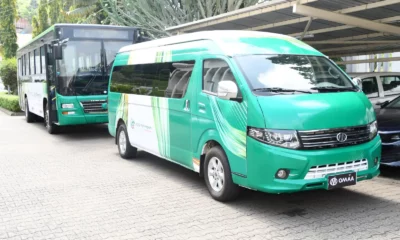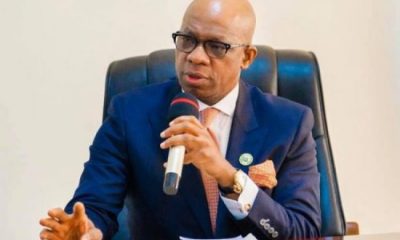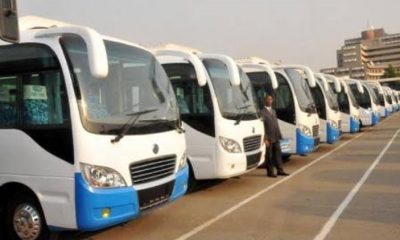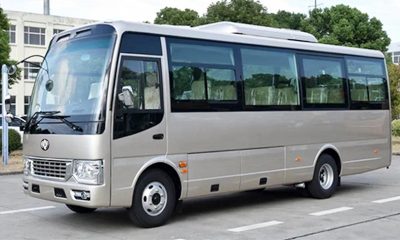“While you have government investing with policy, some of the infrastructure and intellectual property,” he said.
Auto
Photos: Nigeria, US, Germany missing on 2040 electric vehicle adoption

- Toyota, Nissan, VW yet to sign document
Despite announcements by major countries of the world including the United Kingdom and France to phase out petrol and diesel automobiles in or before 2040, a number of nations will still be allowing the use of fossil-fuelled vehicles.
This is the fallout of the recent outcome of the COP26 summit held in Glasgow, Scotland where 33 governments signed a declaration pledging to accelerate the transition to zero emission vehicles by the year 2040, newstrends reports.
Many other nations were expected to seize the climate summit to make strong statements and commitment towards ending the petrol and diesel vehicles considered a major contributor to emissions and by extension climate change.
Germany, the US, China, Russia and Australia are among countries that did not sign the end-emission by 2040 declaration.
Nigeria, understandably being a developing country still heavily dependent on oil revenue, did not sign it either. President Muhammadu Buhari played safe by saying the nation would have its zero emission by 2060.
Not all automakers churning out EVs have signed the declaration. Nissan, Toyota, Hyundai and Volkswagen are some examples.
By implication, the full adoption of EVs and green vehicles – natural gas-powered vehicles – globally would not happen by 2040.
This means automakers will continue to produce and sell vehicles running on petrol and diesel, and baring any policy change 2060 in the case of Nigeria.
The US did not sign the declaration, even though Canada and Mexico did with several individual US states including California, Washington and New York.
However, a number of automakers with sales in the US have signed the declaration, including Ford, GM, Volvo, Mercedes-Benz and Jaguar Land Rover.
But just a handful of automakers have signed the non-binding declaration. They are GM, Ford, Volvo, BYD Auto, Jaguar Land Rover and Mercedes-Benz.
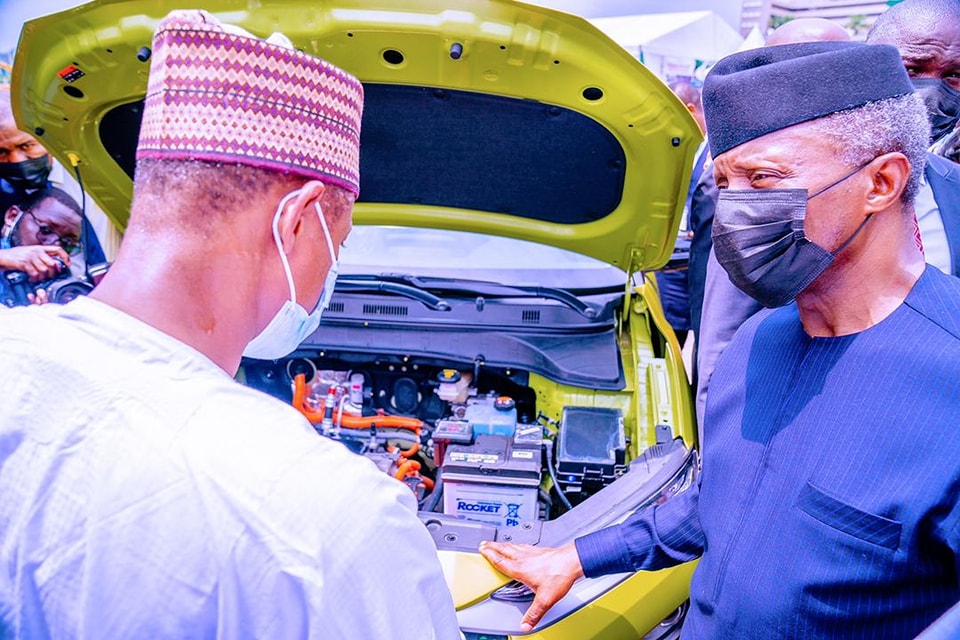
Apart from VW, Toyota, Nissan and Hyundai, Honda, Subaru and Kia are yet to sign the document.
“As automotive manufacturers, we will work towards reaching 100% zero emission new car and van sales in leading markets by 2035 or earlier, supported by a business strategy that is in line with achieving this ambition, as we help build customer demand,” the declaration states in part. Want to figure out more info about slots on mobile? Visit this portal in order to see the best mobile slots for US punters. Knowledgeable gambling specialists covered software studios, RTP, and also other features.
A number of major corporations have also reportedly signed the declaration, when it comes to making fleet purchases, with companies such as Uber, Siemens, GlaxoSmithKline and Astra Zeneca.
“As cities, states, and regional governments, we will work towards converting our owned or leased car and van fleets to zero emission vehicles by 2035 at the latest, as well as putting in place policies that will enable, accelerate, or otherwise incentivize the transition to zero emission vehicles as soon as possible, to the extent possible given our jurisdictional powers,” the declaration states.
Overall, the declaration itself is seen as a relatively tame gesture, committing to “rapidly accelerating the transition to zero emission vehicles to achieve the goals of the Paris Agreement.”
The signatories are said to only committing to working toward the sale of new cars and vans being zero-emission by the year 2040, with no firmer provisions, verifiable incremental steps, or enforcement mechanisms contemplated.
It’s also notable that among the major absences, Volkswagen itself has committed to offering only electric vehicles in Europe by 2035, with an aim to reach 70% of sales by 2030. But the automaker has not made a similar pledge for other regional markets, which are expected to be EV-averse for quite some time.
Toyota’s absence is said to be understandable for other reasons: the automaker has long been an EV skeptic, and has lobbied against EV adoption measures even as it is in the process of introducing its first mass-market electric models in the coming months.
A number of these major automakers sell vehicles in over a hundred countries each, so they have to take EV-averse markets into account when making sales projections for the year 2040.
The absence of China, Russia and Australia from the list of signatories is also said to be understandable as well, each for its own reasons, even as China races ahead in the region when it comes to EV adoption, outpacing Japan.
By comparison, the EVs in Russia are barely a blip on the radar, and are not expected to be a factor in annual vehicles sales until well past 2050.
One country that did sign the declaration despite a fairly low EV adoption rate and policy measures is India.
Germany’s absence from the list is considered the major surprise, despite some recent moves by the country to promote EVs on an individual city level, amid a surge in EV adoption over the past two years.
In Nigeria, although the first electric car – Hyundai Kona – has been launched, followed by electric bus, the journey to a total phase out of diesel and petrol vehicles appears still far, no thanks to poor infrastructure and weak policy implementation.
Buhari at the summit appealed for financial assistance towards meeting the commitment, adding that easier access to climate finance had become imperative in view of the COVID-19 pandemic, which battered the economies of developing countries.
He specifically stressed that greater efforts should be channelled towards assisting developing nations to meet their ‘Nationally Determined Contributions (NDCs) commitments through the pledges made by the developed countries to provide at least $100bn yearly.
Even as Director-General of the National Automotive Design and Development Council, Jelani Aliyu, admits that the nation had obvious infrastructure challenges, he asserts that Nigeria’s automotive industry is advancing towards actualising the manufacturing of the EVs and gas-powered vehicles, in keeping with the net-zero target by 2060.
He stated this while addressing delegates at the COP26 UN Climate Change Conference in Glasgow.
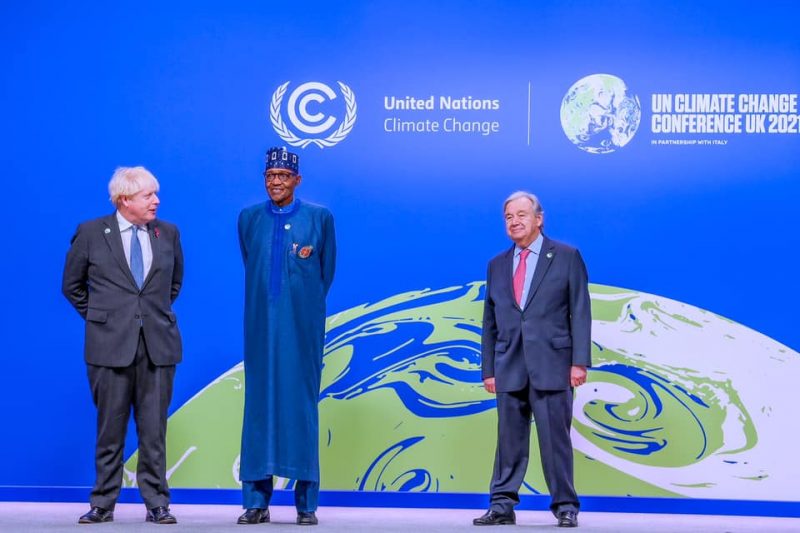
According to him, the recent assembling of the EV by Hyundai (Kona) and the assembly of Auto gas-powered minibus by OMAA, a division of Kojo Motors, are all testimonies to the efforts the country is making in that direction.
He said, “Nigeria has committed to get to net-zero by 2060, I believe that is sufficient time for us to really develop the necessary alternative solutions for transportation.
“Yes, we have challenges, but we will not allow ourselves to be defined by those challenges; we will only be defined by our dreams and aspirations; we must be defined by what we can achieve.”
Auto
CNG conversion centres now 170, FG targets 200 Dec 31
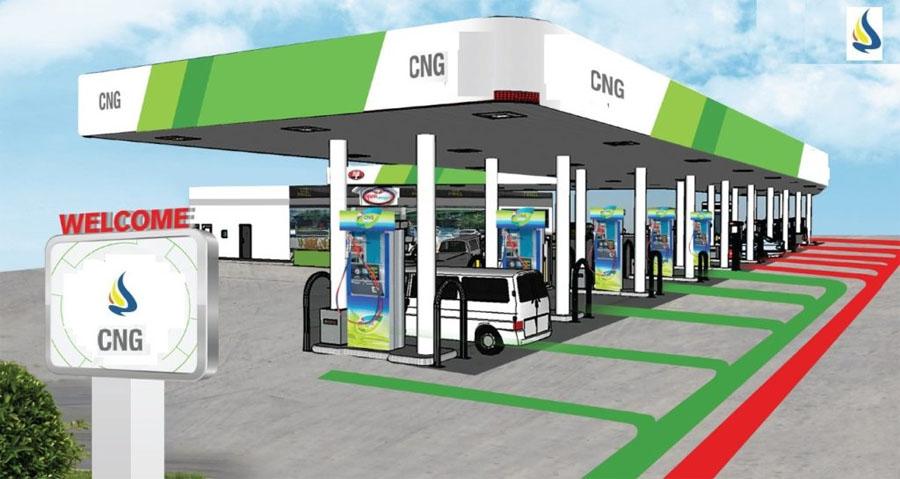
CNG conversion centres now 170, FG targets 200 Dec 31
The Presidential Compressed Natural Gas Initiative (P-CNGI) on Wednesday announced that the CNG conversion centres in the country are now 170.
It was upbeat that the 170 CNG conversion centres in Nigeria would increase to 200 at the end of December 2024.
The centres hit 170 with the commissioning of Portland Gas Conversion centres in Kado, Abuja.
Speaking with reporters, the PCNGI Chief Executive, Engr. Michael Oluwagbemi, said the P-CNGI which has doubled its target for 2024, is hopeful of hitting 500 conversion centres next year.
His words: “Before the end of this year, I promise in the next two weeks, we will get to 200. We are already looking for and certifying at least an additional 35 to 40 on our record.
“I believe we will get to 40 at the end of this year. And that is double our target. You remember this time last year, I told you our target was 100 and now 200.
“Next year, we have set a target of 500 for us and I believe we will blow.”
He recalled that from the seven conversion centres of 2023, there are now 170 centres in Nigeria.
According to him, all the conversion centres are owned by private-sector investors.
“We went from seven conventional centres, that with these now, I easily would say we are around 170.
“So today, from seven to 170, there is not a single one of those that were built by the Federal Government of Nigeria,” he said.
He urged Portland Gas Limited to increase its working hours from 24 to the present 24 hours.
Meanwhile, the Portland Gas Limited, Chief Executive Officer, Engr. Folajimi Mohammed said the workshop which opens 12 hours daily, can convert a car within one hour.
READ ALSO:
- NAFDAC destroys N5bn fake, expired products in Aba
- Speaker Abbas to Tinubu: Your reforms have disrupted status quo
- Abuja demolition: Soldiers attack FCTA officials, seize vehicles
He said it is a full state-of-the-art centre, comprising the mechanical, electrical, calibration, and of course which cannot be done without gas.
He said: “So what we do here is a Turkey solution, where from the conversion part of it, you can make sure that when you leave here within an hour, thereabouts, you are able to make sure that you have a fully converted CNG car.
“And when I mean fully converted CNG car, I mean, it is still a hybrid. You can have the option to switch from petrol to gas where you want to.”
According to him, the tanks that are presently installed in the vehicles are durable for 20 years.
He said since the infrastructure is limited in the country, it is advisable to convert the vehicles in a manner they can use other fuels in addition to CNG.
Mohammed said, “We know the gas infrastructure is just about to improve. “Well, for now, what we have, the limited availability of the infrastructure, by making sure that you don’t do 100% conversion. I can always switch to petrol in the event of any emergencies.”
He said being methane, the gas is very safe as it is lighter than air.
Besides, Oluwagbemi said a free interstate transportation will be provided in the Federal Capital Territory between during the Yuletide.
According to him, six buses will be added to the fleet.
He said, “You know in Abuja today we have 16 buses running Gwagwalada to Keffi and Nyanya as well as in Nigeria that project is already ongoing and it will be expanded to interstate this week.
“We are going to put additional six buses to run interstate here in Abuja and neighbouring cities. We are just providing free transportation programme during the yuletide period.”
Speaking, the National Agency for Science and Engineering Infrastructure (NASENI) Executive Vice Chairman, Khalil Suleiman Halilu recalled that the CNG journey started a long time ago.
He added that the CNG of Portland is a first of its kind in terms of partnership and private sector.
He said in the partnership, the government provides the policy, infrastructure, and intellectual property.
Auto
Coscharis, Toyota, Globe, Weststar, CFAO, others that win big at NAJA Auto Awards
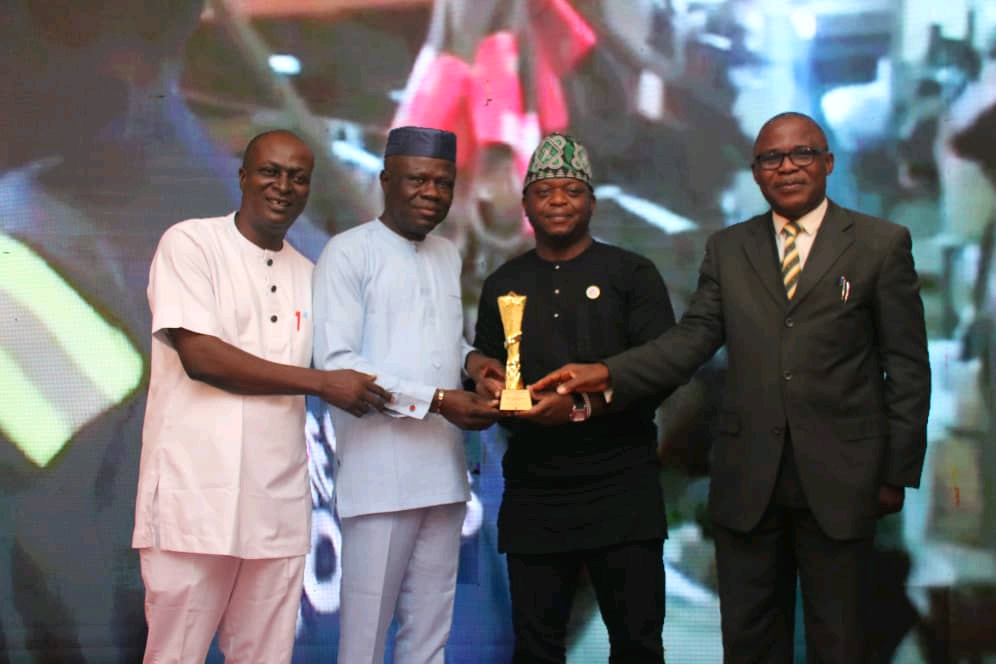
Coscharis, Toyota, Globe, Weststar, CFAO, others that win big at NAJA Auto Awards
Globe Motors, Coscharis Motors, Toyota Nigeria, CFAO, Weststar Associates and Lanre Shittu (LSM) are among big winners at the 2024 NAJA (Nigerian Automotive Journalists Association) Auto Awards.
The prestigious event, which held on Wednesday December 11 at Oriental Hotel, Victoria Island, Lagos recognized various categories within the industry, ranging from vehicle innovation to service excellence.
As earlier announced Mikano Motors’ Changan CS55 beat Toyota Corolla and Kia Rio to win the coveted 2024 car-of-the-year prize.
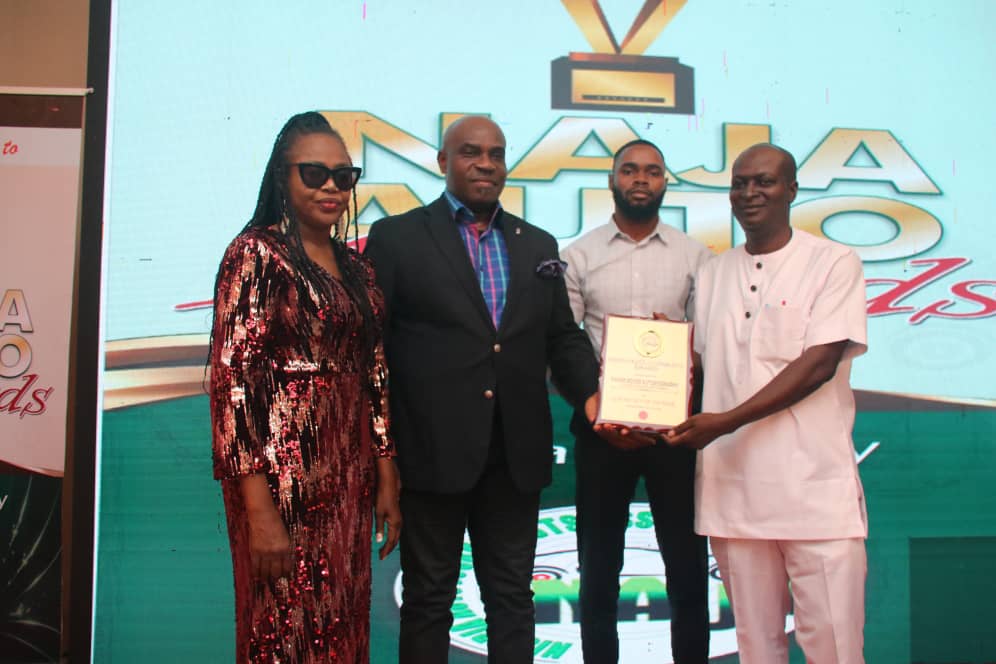
Globe Motors emerged as the Most Resilient Company of the Year, while Coscharis Motors bagged the Multi-Luxury Brand of the Year along with the luxury SUV of the year with Range Rover Autobiography. Toyota Nigeria Limited (TNL) and MD/CEO of Lanre Shittu Motors (LSM) were honoured as Auto Company of the Decade and Auto Personality of the Year respectively.
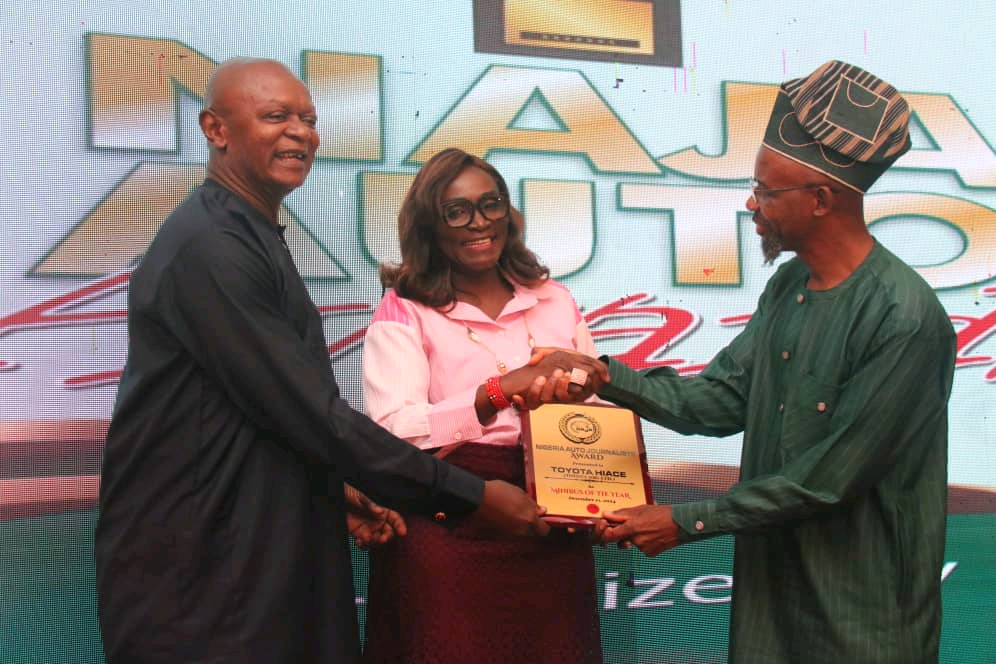
Also, CFAO won the Outstanding After-Sale Service, Product Launches of the Year with the Toyota Land Cruiser Prado and Suzuki Vitara, and the Most Enterprising Auto Company, while Chief Chidi Anyaegbu MFR (Founder, Chisco Motors) was recognized as the Transport icon of the Year; Mrs. Karima Okunola of Mikano Motors bagged the Auto Marketing Manager of the Year.
The companies were lauded for their commitment to providing quality vehicles and top-notch aftersales services, which have contributed to their solid reputation in the Nigerian auto market over the years.
Other notable winners included Innoson Vehicle Manufacturing, which was celebrated for its pioneering role in local vehicle production; Nord took home CNG-powered mini bus brand, and A9 launch recognition.
Weststar’s Mercedes-Benz was declared luxury brand of the year and the S-Class won luxury car of the year.
Carloha with its handling of Chery was adjudged the most innovative company of the year, just as the Chery Tiggo 8 Pro launch received a recognition.
While Dangote Sinotruk won the heavy duty truck manufacturer of the year, Lanre Shittu’s JAC was again awarded the heavy duty truck of the year. Taiwo Shittu, MD of the LSM emerged Auto Personality of the Year. His later father and founder of the company received a posthumous award.
RT Briscoe bagged the workshop of the year award; Dana Motors’ Kia Sonet won the best compact SUV prize, and the mini bus assembler of the year went to Jet System.
In his speech, Chairman of NAJA, Mike Ochonma, said, “This year’s NAJA Auto Awards highlights not just the achievements of the big names in the industry, but also the rising stars who are shaping the future of Nigeria’s automotive landscape.”
Auto
Nigeria’s auto industry in limbo over policy delay – LCCI sectoral head
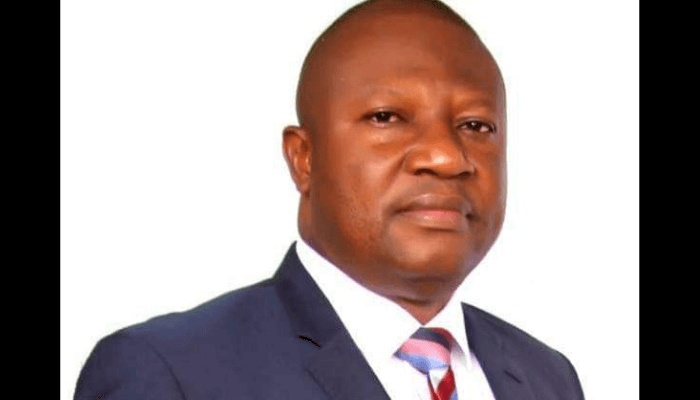
Nigeria’s auto industry in limbo over policy delay – LCCI sectoral head
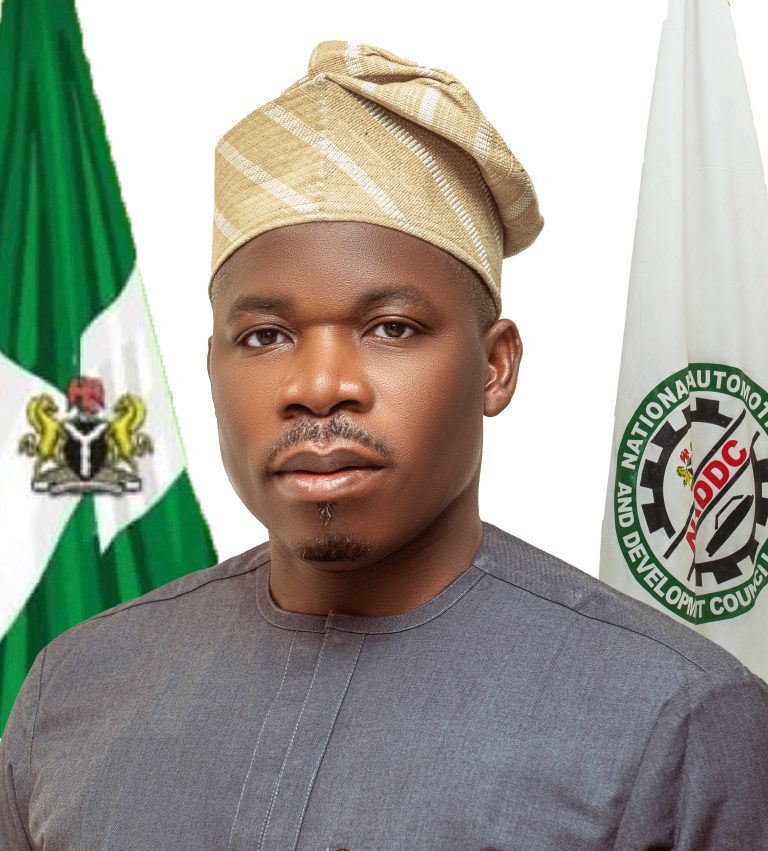
Nigeria’s automotive industry is in limbo due to prolonged delay in enacting the required law to give investors the right direction.
Head of the Auto Sectoral Group of the Lagos Chamber of Commerce and Industry (LCCI), Mr. Kunle Jaiyesinmi, stated this, noting that the industry was being allowed to stagnate, making it difficult to galvanise the overall development of the Nigerian economy
Jaiyesinmi who is Deputy Managing Director of CFAO Motors, spoke in Lagos on the sidelines of the 2024 Nigeria Auto Industry Awards organised by the Nigeria Auto Journalists Association (NAJA).
He said, “For now, we are in limbo. We don’t know what is happening to the (auto industry) policy; whether it’s with the Executive or it has gone to the National Assembly. We don’t have information on the stage that the policy is. I think NADDC is coming up with a stakeholders’ meeting maybe they would give us a very detailed information on the policy.”
In his assessment of the performance of the business this year, he lamented that the macroeconomic challenges including the high exchange rates and inflation were adversely affecting vehicle salesmmm
He said, “2024 has provided a topsy-turvy ride looking at the state of the economy. The purchasing power has been so much eroded (due to) the depreciation of the naira (the exchange rate).
“Prices have risen to a level that most private consumers cannot really afford it (new car). You notice that the major corporates are really suffering. You can imagine how much they lost in terms of exchange rate.
“So that has really impacted the procurement of new vehicles… We have more of automobile maintenance service rather than new sales.
“If you look at the market figure, it has so much reduced compared to what we had been having when the exchange rate was around N450, N480. So it’s not been a very good year for automobile business.
Jaiyesinmi also spoke on the high interest, which is over 33%; as well the recently announced government-back N20 billion auto finance.
He said, “Automobile loan is a no-go area for consumers. It’s a bit tough now. Reliance is on government now and it’s not everybody that can do government business.
“We are just looking at 2025 to be a better year going by the appreciation of the naira in recent times. We are just praying that it can be sustained. If we are able to get that into the new year maybe vehicle prices would reduce and based on the government providing very good enabling environment for businesses to thrive.”
Speaking on the N20bn auto finance scheme by the credit corporation (CreditCorp), he said, “The N20bn scheme is even belated because when the Auto Policy started about 10 years ago, the 35 per cent tariff being charged on fully built vehicles, the understanding we had then was that part of it would go to the auto financing and the other part would go to automobile assemblers’ facility.
“In 10 years, nothing happened and we know how much has been collected by the Federal Government from that levy.
“So N20bn is a paltry amount and the scheme is coming up a bit late. Looking at the local assembling, how many assemblers are we really having in Nigeria? Those of us that started eight, nine years ago, almost all of us have really closed shop.”
He however expressed optimism that the new Minister of Industry, Trade and Investment, Dr Jumoke Oduwole, would turn things around.
“I believe she should be able to drive this policy. She should try as much as possible to run away from the era of deceit. She should face reality and I believe as a realist, her tenure would portend a good tiding for the automobile business,” he said.
-

 Railway1 day ago
Railway1 day agoLagos Rail Mass Transit part of FG free train ride – NRC
-

 metro14 hours ago
metro14 hours agoWhy we displayed ‘Jesus Christ is not God’ banner at Lekki mosque -Imam
-

 metro2 days ago
metro2 days agoCourt stops customs from seizing imported rice in open market
-

 metro3 days ago
metro3 days agoIbadan stampede: Tinubu orders probe as death toll hits 40
-

 metro2 days ago
metro2 days agoIbadan stampede: Ooni reacts after arrest of ex-wife
-

 metro3 days ago
metro3 days agoAfe Babalola: Court grants Dele Farotimi bail, barred from media interviews
-

 metro1 day ago
metro1 day agoNIMC warns against extortion, reaffirms free NIN enrollment
-

 News3 days ago
News3 days agoAdebayo Ogunlesi, 2 other Nigerians make Forbes 50 wealthiest Black Americans list 2024



